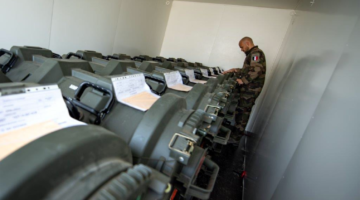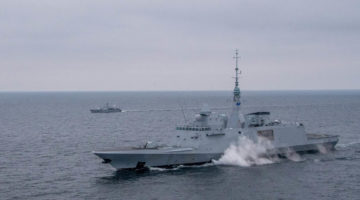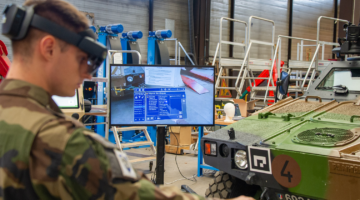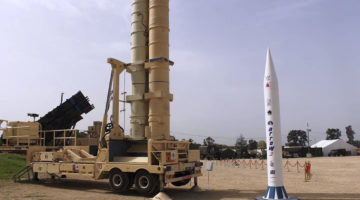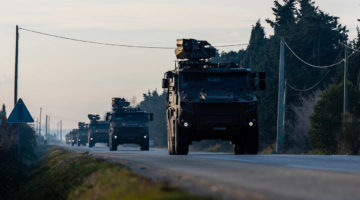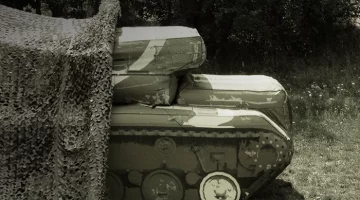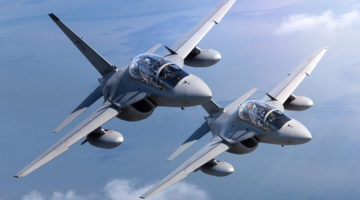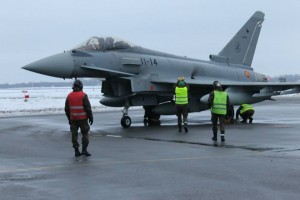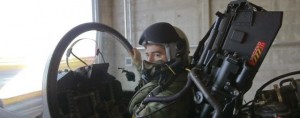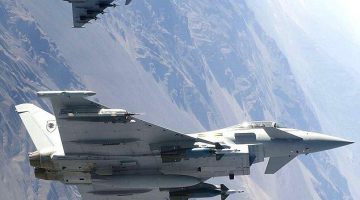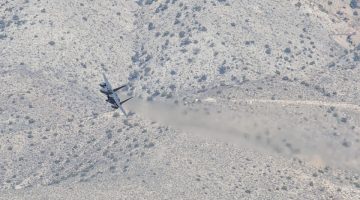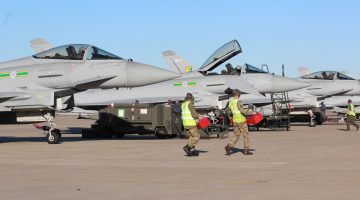Spain took over the rotating command of NATO’s air policing mission in January 2015.
According to an El Pais article published on February 19, 2015:
Planes from Group 11 of the Spanish Air Force have been in control of NATO’s Baltic Air Policing Mission (BAPM), based in Ämari, since January 1 and will continue there until May 4.
So far, the Eurofighters have conducted 108 patrols, clocking up nearly 200 hours of flight time. Only one flight had to be canceled because of technical problems.
A Spanish pilot in one of the Eurofighters dispatched to patrol the Baltic. / JUANJO MARTIN (EFE)
Eurofighters have conducted 108 patrols, clocking up nearly 200 hours of flight time
“It has been better than we thought,” said Lt. Col. Enrique Fernández Ambel, who is heading the team of 115 Spanish officers of the Ambar detachment.
But the fears are real and the tension exists. NATO is concerned that the conflict may spill over from Ukraine, where the Kiev government has been fighting pro-Russian separatists.
Along the icy waters of the Baltic, two old Cold War adversaries can look directly into each others’ eyes at distances sometimes as close as 300 meters – that is how near Spanish Eurofighters have come to Russian aircraft during the interceptions that have taken place.
These testy encounters have occurred about half-a-dozen times when Russian Ilyushin and Antonov transport planes – modified for spying or electronic warfare – fly from St Petersburg to the Russian enclave of Kaliningrad Oblast, which is sandwiched between Lithuania and Poland.
Although the Russian jets have not violated Baltic airspace, they ignore international air navigation rules by not filing a flight plan, turning off their transponders so they can’t be identified, or refusing to communicate with civil aviation authorities.
The Spanish Eurofighters usually intercept and escort them under the orders of NATO’s Combined Air Operations Center (CAOC), based in Uedem, Germany.
Commander Eladio Daniel Leal said the tensest moments usually occur when the alarm goes off and “you just don’t know who you are going to encounter, or how they are going to react.”
NATO has been helping the Baltic nations patrol their airspace since 2004 as none of them has an air force of their own. Member countries take turns leading the mission.
SOURCE >>> http://elpais.com/elpais/2015/02/19/inenglish/1424342029_255173.html
Photo >>> Spanish Air Force
SEE ALSO ON THIS ISSUE >> > NATO Allied Command Operations website
Fighter aircraft from Italy, Poland, Spain and Belgium took over NATO’s Baltic Air Policing Mission on January 1, 2015 and will continue to patrol the skies over Latvia, Lithuania, and Estonia with a total of sixteen aircraft over the next several months.
NATO has quadrupled the number of NATO fighter jets monitoring the airspace over the Baltic states since early 2014.
This is one of several prudent and defensive measures taken by NATO in response to the security challenges posed by Russia’s recent destabilising actions and use of hybrid warfare in Eastern Europe. (…)

